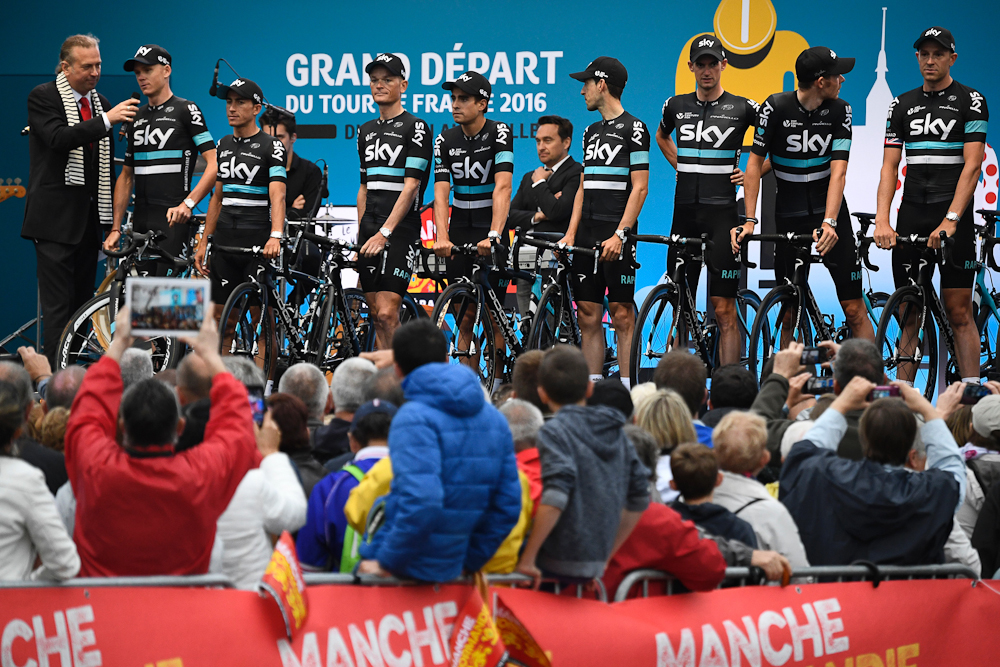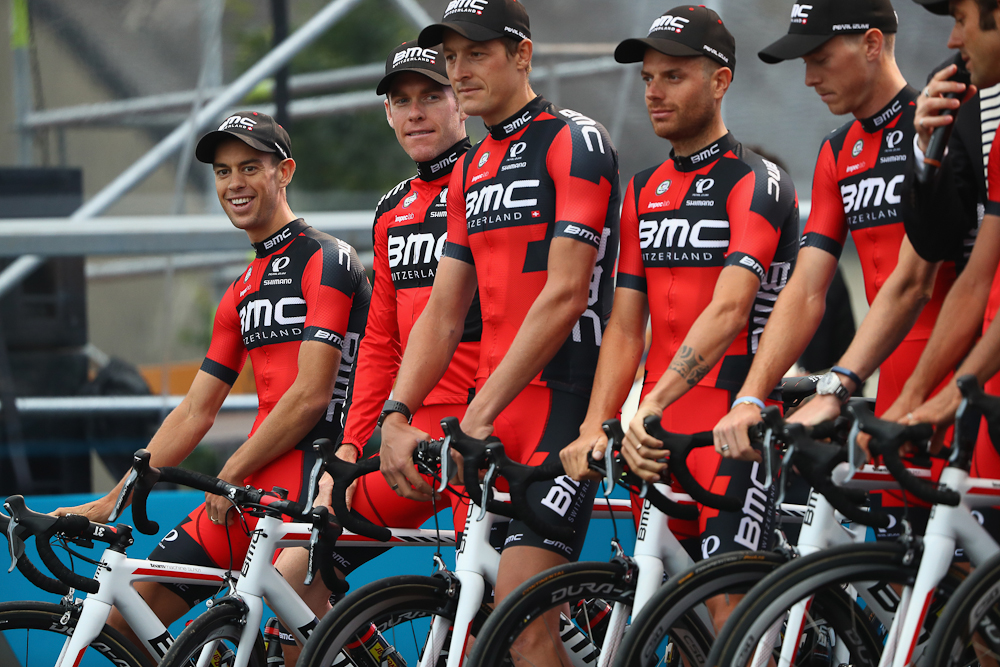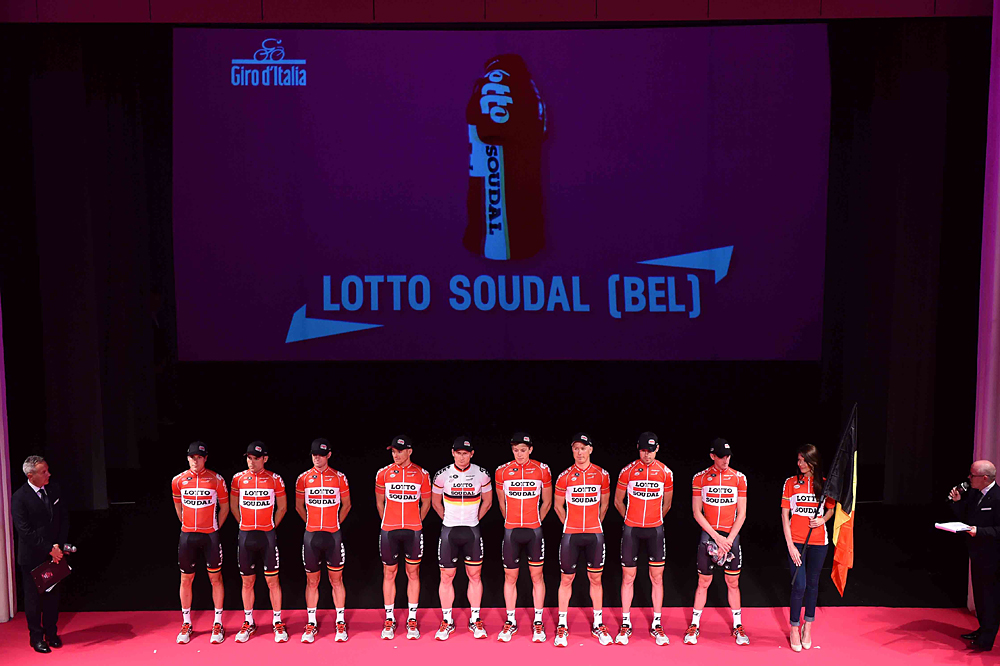Tour de France team sizes to remain the same in 2017
UCI Pro Cycling Council overrules ASO, RCS Sport and Flanders Classics' plans to cut team sizes





Cyclingnews understands there will be no reduction in team sizes in the 2017 Tour de France, Giro d'Italia, the cobbled Classics and other races, after leading race organisers ASO, RCS sport and Flanders Classics accepted that any changes to planned team sizes must be put on hold and approved by the UCI's Professional Cycling Council that is responsible for the rules of professional racing.
On November 26, during the General Assembly of the International Association of Cycling Race Organizers (AIOCC), Amaury Sports Organisation, which owns the Tour de France and co-runs the Vuelta a España, came together with Giro d'Italia owners RCS Sport and Belgian one-day organisers Flanders Classics and agreed to limit the number of riders teams can field in races.
They announced they would reduce Grand Tour teams from nine to eight riders and reduce teams from eight to seven riders in their other events. They caused consternation by saying the new policy would go into effect for the 2017 season, despite teams having already completed their 2017 rosters and planned their race programmes.
The race organisers cited possible improved safety for the riders and hoped that smaller teams would "make it more difficult to dominate a race as well as enhance conditions for events to offer better racing for cycling fans".
The reduction was seen also seen as a way of limiting Team Sky's dominance at the Tour de France.
However the UCI hit back at the race organisers' unilateral decision during the UCI WorldTour seminar in Mallorca, reiterating what they said in an initial reaction to the decision that "any changes to the regulations governing men's professional road cycling must be agreed by the Professional Cycling Council (PCC), on which the race organisers are fully represented."
It appears that the race organisers have now accepted their role on the Professional Cycling Council and that they cannot go against a democratic process that they voted in. Somewhat embarrassingly, the big three race organisers conceded that any plans to reduce team sizes was only a request and accepted that no changes will be made for 2017.
Get The Leadout Newsletter
The latest race content, interviews, features, reviews and expert buying guides, direct to your inbox!
A conflicting debate
The argument about reducing the size of teams taking part in the biggest events on the calendar has been rumbling along for some years and often returns when serious accidents occur.
Those in favour suggest that a cut in team sizes will increase safety by reducing the size of the peloton, and would boost suspense by limiting the degree to which teams can control the action. Those opposed insist this analysis is flawed and a reduction would simply heap more pressure on domestiques and could even cut the number of places available on team rosters. Others suggested that teams would simply strike up more alliances.
Tour de France technical director Thierry Gouvenou naturally backed a reduction, telling L'Equipe: "When you see the strength of some teams, you soon understand that not much is going to happen. We need to rediscover an element of uncertainty."
However team managers generally disagreed and were angered by the race organisers unilateral decision after they had built their teams for 2017.
"Count the number of races where we have to go with one less rider. Then we would have had two, maybe three riders less in our roster for 2017. The total cost of this decision is perhaps ninety jobs at WorldTour level, also because we need less mechanics and soigneurs for example," LottoNL-Jumbo team manager Richard Plugge told Nos.

Stephen is one of the most experienced member of the Cyclingnews team, having reported on professional cycling since 1994. He has been Head of News at Cyclingnews since 2022, before which he held the position of European editor since 2012 and previously worked for Reuters, Shift Active Media, and CyclingWeekly, among other publications.